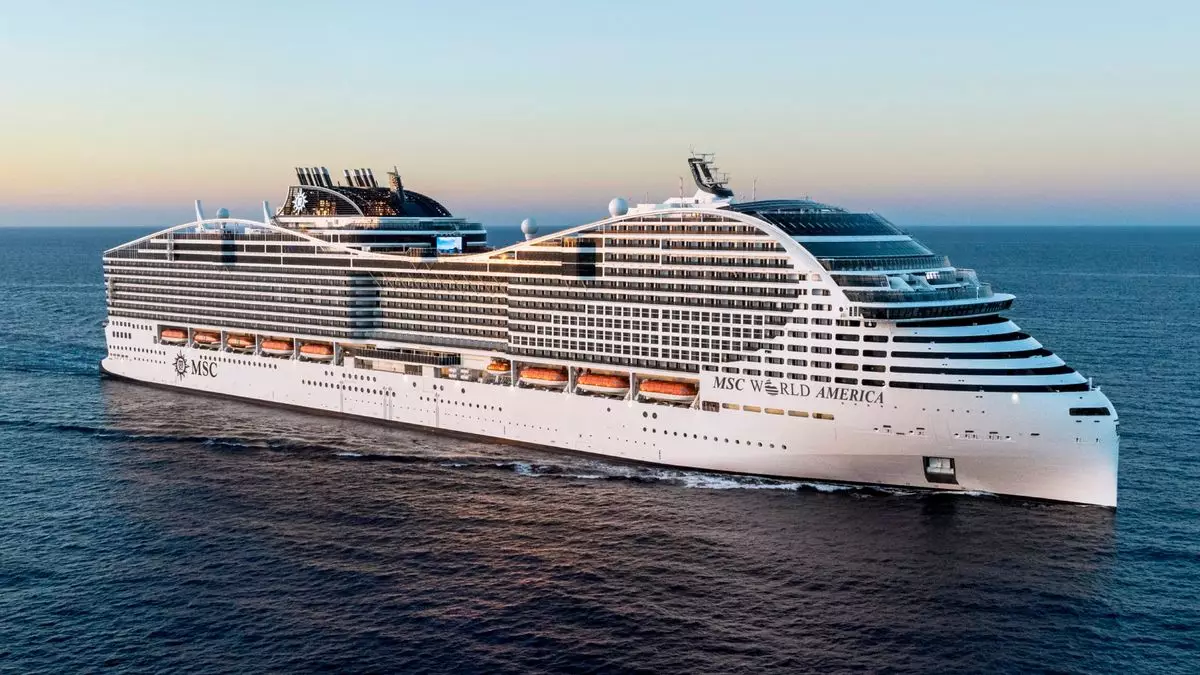The cruise industry, having weathered significant upheaval due to the pandemic and a subsequent surge in demand, is on the brink of a transformative year in 2025. As the sector continues to adapt, new trends and underlying challenges are set to shape its trajectory. This article delves into the anticipated changes within the cruise industry, the strategies companies are implementing to maintain consumer interest, and the broader implications that may arise in the coming years.
As 2025 approaches, the cruise industry reveals a complex but promising landscape. Despite experiencing robust booking rates, the economic climate is shifting. Rising consumer debt levels and decreasing savings rates in the U.S. are likely to influence vacation spending habits significantly. Clayton Reid, a seasoned expert in the field, suggests a potential slowdown in demand for longer vacations may occur as consumers tighten their budgets for big-ticket trips. It is critical for cruise lines to recognize these shifts and tailor their offerings accordingly to maintain market share.
While the luxury cruise segment may remain resilient, mainstream cruise operators could face challenges due to cost-conscious travelers. As budgetary constraints put pressure on consumer choices, cruise lines may find themselves navigating a turbulent market. This situation may motivate them to strategize meticulously around pricing and the experiences they offer to potential guests.
In the face of potential downturns, cruise lines are not simply standing still; they are actively seeking innovative ways to sustain demand. One prominent strategy is the enhancement of shipboard attractions that mimic the appeal of land-based vacation experiences. For example, Royal Caribbean International’s Icon of the Seas is set to debut a six-slide water park, a first for the industry, which underscores the cruise line’s commitment to providing unparalleled onboard experiences.
Moreover, cruise companies are increasingly leveraging technology, employing AI-driven marketing strategies and dynamic pricing models to capture consumer interest prior to boarding. These advanced marketing techniques are crucial in encouraging guests to spend more both pre-emptively and during their cruise, thereby helping to stabilize revenue streams against the backdrop of a challenging economic environment.
2025 is poised to be a remarkable year for new cruise ship launches and private destinations. With more than half a dozen large vessels set to enter service, including highly anticipated ships like the MSC World America, the industry is undergoing rapid expansion. These new additions highlight the competitive landscape in which cruise operators are engaging, reminding stakeholders that the battle for consumer attention is fiercer than ever.
Private destinations, which have gained popularity in recent years, are also strategic focal points for major cruise lines. The openings of Carnival’s Celebration Key and Royal Caribbean’s Royal Beach Club reflect a growing trend where cruise companies are investing heavily in exclusive, private experiences that enhance their overall offerings. These destinations not only cater to cruiser preferences for unique locales but also help mitigate the impacts of overtourism in traditional ports.
The cruise industry’s response to environmental concerns and geopolitical constraints is an ongoing battle. As destinations like St. Petersburg remain sensitive to global political climates, the industry’s adaptability will be crucial. Future reviews of port access and potential limitations on passenger volumes underscore the industry’s need to navigate concerns regarding overtourism.
Moreover, a commitment to environmental sustainability is becoming a front-and-center issue for cruise operators. While broader adoption of clean fuels like green hydrogen is not immediately feasible, several companies are expected to explore biofuel options and develop plans to retire older ships. These initiatives are essential not only for regulatory compliance but also for maintaining a competitive edge in an increasingly environmentally-conscious market.
Ultimately, the cruise industry in 2025 will be characterized by a delicate balance between innovation and adaptation to external pressures. While cruises offer compelling value compared to traditional land vacations, they must remain adept at adjusting to changing consumer behaviors and economic trends. The commitment to enhancing guest experiences, creating exclusive destinations, and prioritizing sustainability will form the cornerstone of the industry’s strategy as it moves toward a potentially tumultuous yet opportunistic year. As we look to 2025, it is clear that the cruise industry must remain vigilant and innovative to thrive in a rapidly evolving landscape.


Leave a Reply